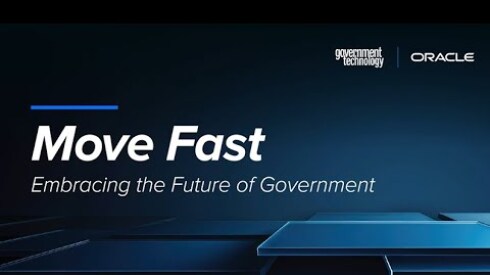Government Experience
-
Work on the new portal began in 2023, with the next phase scheduled for 2026. Nevada joins other states in setting up such portals for a variety of tasks, including accessing services such as unemployment benefits.
-
The federal government’s now-defunct United States Digital Service has served as an inspiration for states that are increasingly putting human experience at the center of their tech projects.
-
The myColorado app now lets ID verifiers like government agencies or businesses scan a QR code on a user’s digital ID to quickly determine its validity. Some 1.8 million of the state’s residents use the app.
More Stories
-
The My Whitfield community mobile app offers details on area housing, careers and events as well as links to regional municipal websites. It was developed in partnership between the county, the city of Dalton, and civic organizations.
-
The state Department of Commerce and the Eastern Shore Regional GIS Cooperative have launched four dashboards that aggregate multiple streams of demographic and economic data, providing insight for government and residents.
-
Facing book bans and programming controversies, an increasing number of libraries are publishing data dashboards for transparency, public accountability and strategic focus.
-
The state’s licensing and permitting system for outdoor recreation will migrate next year to a new digital platform from a private vendor. It is expected to handle more than 2 million license transactions a year.
-
SponsoredContact centers are essential to creating a satisfying customer experience (CX) for government agencies and their constituents. In this Government Technology Q&A, Jerry Dotson, vice president of public sector, Avaya Government Solutions, explains how the right CX platform lets government organizations implement new contact center technologies easily and efficiently.
-
As governments nationwide work toward providing digital services via an Amazon-like experience, CIO Greg Lane outlines launching Delaware’s single sign-on solution with a payment portal.
-
SponsoredOther forms of digital ID will also be important for serving constituents online and preventing fraud.
-
SponsoredThe public sector faces some unique challenges when it comes to IT management. Here’s what government IT organizations are doing to tackle problems and deliver a great user experience.
-
The state’s DMV Transformation Effort, commenced in late 2021 with a gradual rollout of online service offerings, may not end on schedule. A lack of staff availability is requiring extended outside support.
-
SponsoredIt’s time for state and local governments to move fast and embrace change. To overcome challenges with legacy systems, public sector IT leaders must foster a culture of innovation, implement flexible cloud solutions, and improve the way they deliver services to their constituents.
-
The 2024 City Clean Energy Scorecard by the American Council for an Energy-Efficient Economy rates 75 of the nation’s largest cities against a number of sustainability and greenhouse gas reduction metrics.
-
Minnesota's licensing and permitting system for outdoor recreation — everything from bobcat trapping to Nordic skiing on state trails — will undergo an electronic transformation next year.
-
The company introduced two-way text messaging for the GovDelivery solution, to more directly connect the public sector and residents — but also enhance agencies’ ability to gather feedback and improve services.
-
At the 2024 Government Social Media Conference, officials shared their insight on how to operate in the changing landscape of social media. They also discussed what to expect as AI comes onto the scene.
-
Officials have leveraged digital and mobile tools to make services more widely accessible to Coloradans regardless of location. Simultaneously, they are upgrading their IT infrastructure to more modern tools.
-
The University of Dayton, the city of Dayton and local groups partnered to teach residents basic online skills. Visitors learned how to apply for jobs online, use mobile banking and how to set up a Google email account.
-
The California Health and Human Services Agency’s new IT and Data Strategic Plan underscores a resident-centric, integrated approach to services. It highlights the crucial role of IT professionals in advancing digital equity.
-
Daniel Castro, vice president of the Information Technology and Innovation Foundation, said the U.S. Department of Justice’s rule on government content “... obligates state and local governments to ensure their online services are accessible.”
Most Read
- Cyber.org Reframes Digital Readiness Around Ethics, Unplugged Learning
- Tom Armstrong Named Southern Connecticut State University CIO
- What Might State Government AI Adoption Look Like in 2026?
- Fiber Broadband Seen as a Force Multiplier in These Cities
- AI Nudges Syracuse Professors Back Toward Blue Books, In-Class Work




























